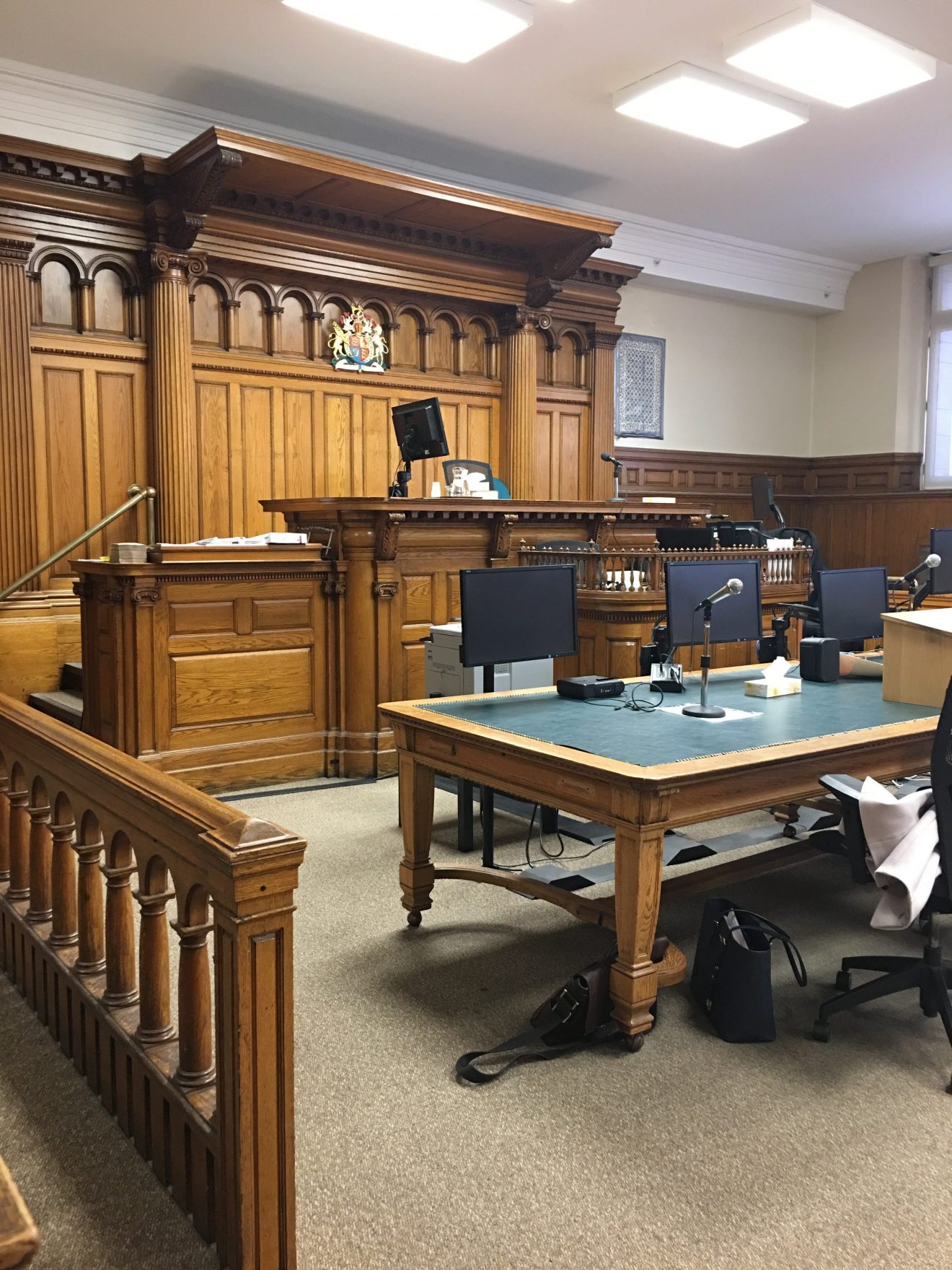criminal
Anatomy of a Criminal Proceeding
22 April, 2019

What exactly does a lawyer do to assist their client in a criminal proceeding? It’s a question that is often asked and poorly understood. American television programs promote the myth of a lawyer walking into a prosecutor’s office, throwing down a file and yelling to advance their client’s case. Real life doesn’t work that way. Neither does telling a judge that they are wrong not to believe our client. Reality is not like television or the movies.
A criminal proceeding starts when the police arrest a person and accused them of committing a criminal offence. The accused person will then either be released or taken to the police station for questioning. Once a person is arrested, they are entitled to speak to a lawyer. They should exercise that right and heed their lawyer’s advice. The police will usually attempt to question the accused person at this time about the offence. The accused’s right to silence is a very powerful right. It is wise to exercise that right. Subsequent to questioning, the accused will either be released or held for a bail hearing.
Bail
In Ontario, a bail hearing takes place in a courtroom before a justice of the peace, who will either order the accused person’s release or detention. In the event the accused person is detained they may be entitled to file an application for a review of their detention by a Superior Court Judge. In all cases, a lawyer working for the accused person will greatly assist in securing their release.
Regardless of whether they are detained or released, an accused is entitled to know the case against them. The material in the form of statements, videos, audio recordings and photographs must be disclosed to the accused person or their lawyer. We then review the material by themselves and then with our client. It is our practice to ask our client to provide us with their version of events that led to the criminal charges. We then formulate a theory for the defence of the charges which we review with our client. We approach each case on the assumption that we will be defending our client at trial for the offences. We read every note, watch every video, analyze each statement, and dissect each report until we know the entire case against our client. The choice of pleading guilty or not guilty belongs solely to the client. We, of course, provide advice grounded on the evidence, however the final decision belongs to the client. See https://lawyer4u.ca/role-of-defence-counsel-in-a-criminal-proceeding/ for the fundamental decisions obligations that belong to the client.
Meeting with prosecutor
Once we have reviewed the disclosure material with our client along with their version of the incident, we are required to have a meeting with prosecutor to discuss procedural issues to move the case along. This discussion inevitably involves discussing the strengths and weaknesses of the prosecution’s case. The prosecutor usually provides their opinion on what penalty they will seek in the event our client pleads guilty to one or more charges. This is commonly referred to as plea negotiations. It is a mandatory part of the criminal process. As lawyers, it is our professional obligation to advise our clients of the prosecutor’s position, whether we agree with it or not. Whether to accept the ‘deal’ is another one of the fundamental obligations that belong to the client, not us. In some cases, the prosecutor may offer a favourable outcome on condition that the accused person complete a counselling program, community service hours or make a donation. Cases may be adjourned many times and seem to drag on for a long time, while the condition is fulfilled. This is always at the client’s direction because the client wishes the outcome that is being offered. Contrary to public perception, it is rarely, if ever, to the lawyer’s financial advantage to proceed in this fashion, particularly when we are receiving a block fee for our services.
The prosecutor may be unwilling or unable due to policy or accountability reasons to offer our client a satisfactory resolution. In those instances and where the trial may be lengthy, a ‘pre-trial’ meeting with a judge is warranted. Those meetings will be similar to the meeting with a prosecutor, except that a judge will provide their objective assessment of the case and possible resolutions. This can be a very real and enormous benefit to the eventual outcome for our client.
In the event that negotiations do not provide the outcome our client is expecting, then we and our client prepare for a trial of the case on the merits where the prosecutor must prove with reliable, admissible evidence each of the elements of the offence for which the accused person, our client, is charged beyond a reasonable doubt. A trial is often complex, unpredictable and stressful. They can be emotionally charged events that require patience, skill and expertise to navigate successfully. Our office spends a lot of time with our clients ensuring that they are prepared for trial. Even then, some cases are insurmountable. Those cases are then taken to the next level of court for an appeal – a topic for another blog.
© Hans John Kalina is a lawyer with Kalina & Tejpal. He can be reached at (416) 900-6999 or at mail@lawyer4u.ca
Tags: criminal court, criminal law, defence lawyer, pleading guilty, pleading not guilty



